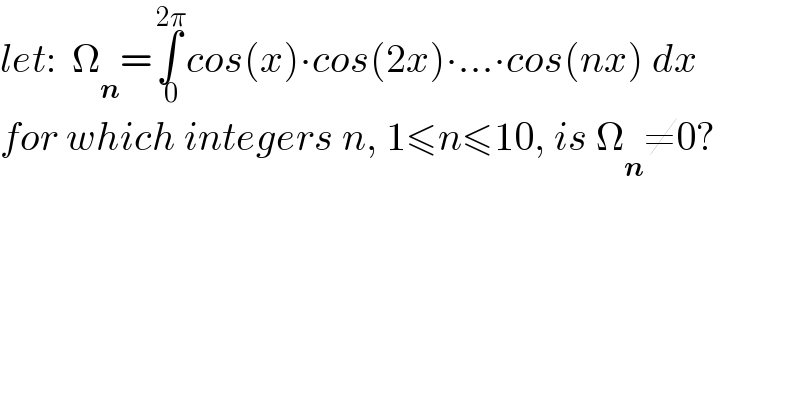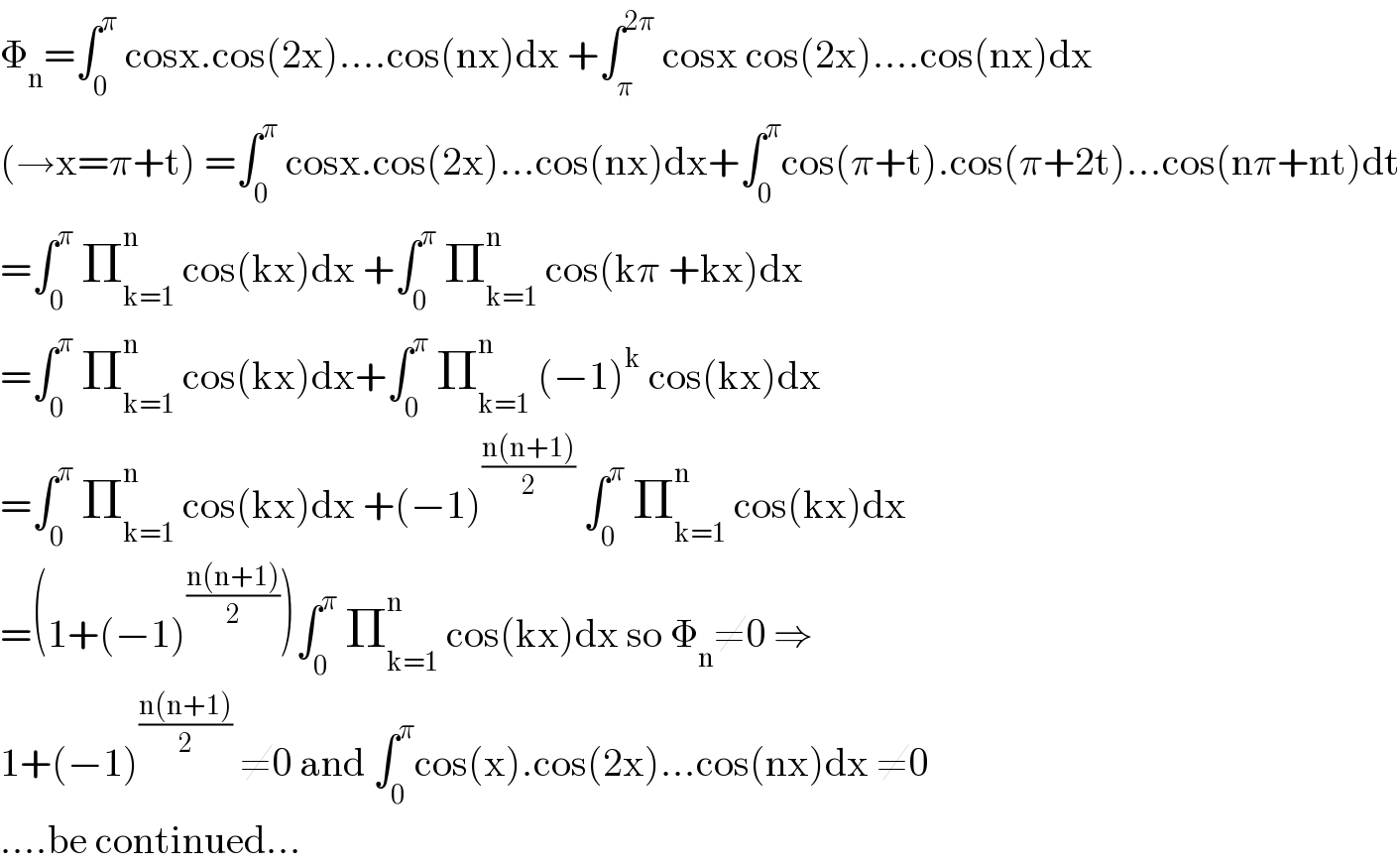
Question and Answers Forum
Question Number 139474 by mathdanisur last updated on 27/Apr/21

Answered by mathmax by abdo last updated on 28/Apr/21

Commented by mathdanisur last updated on 30/Apr/21

| ||
Question and Answers Forum | ||
Question Number 139474 by mathdanisur last updated on 27/Apr/21 | ||
 | ||
Answered by mathmax by abdo last updated on 28/Apr/21 | ||
 | ||
| ||
Commented by mathdanisur last updated on 30/Apr/21 | ||
 | ||